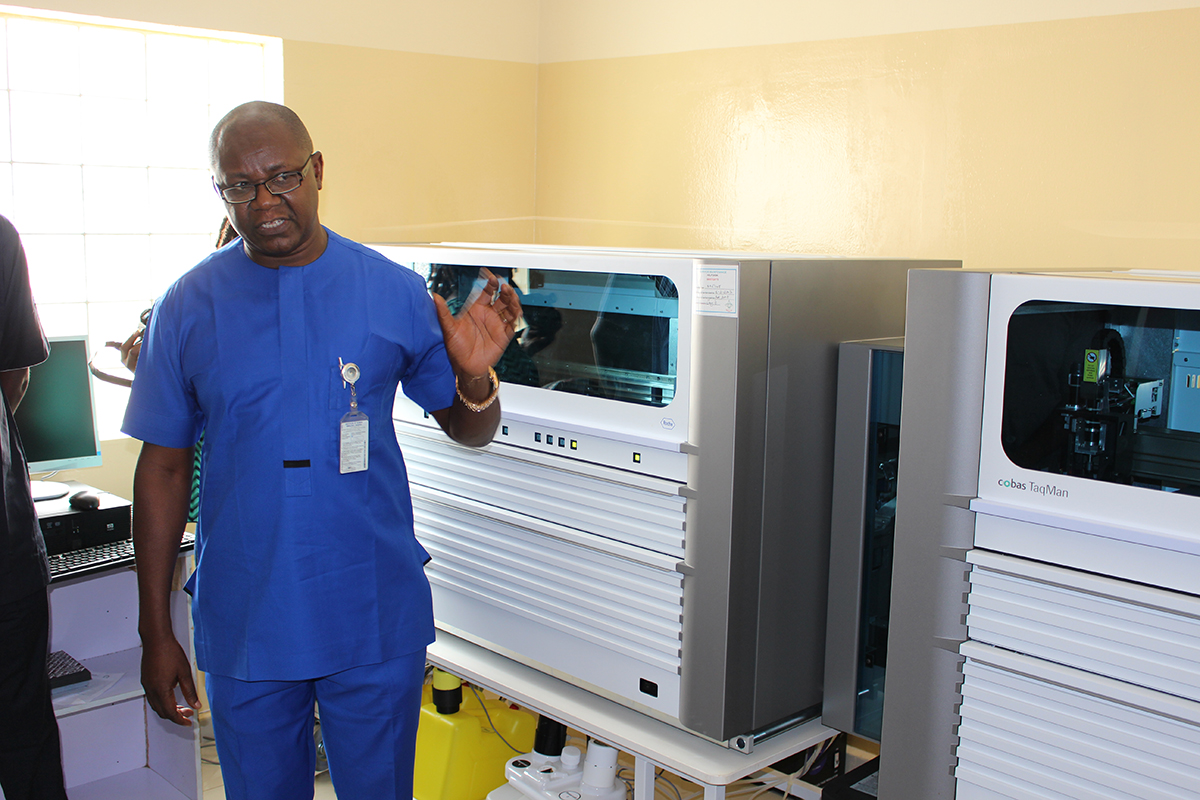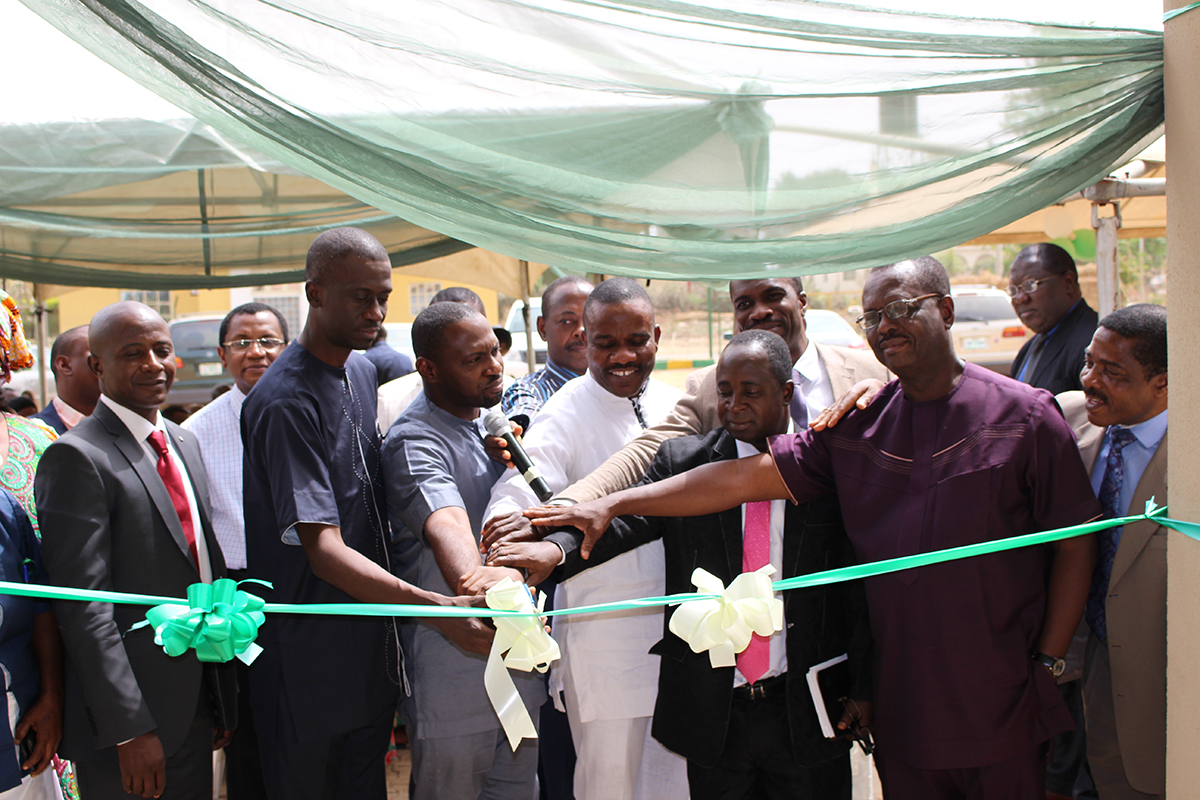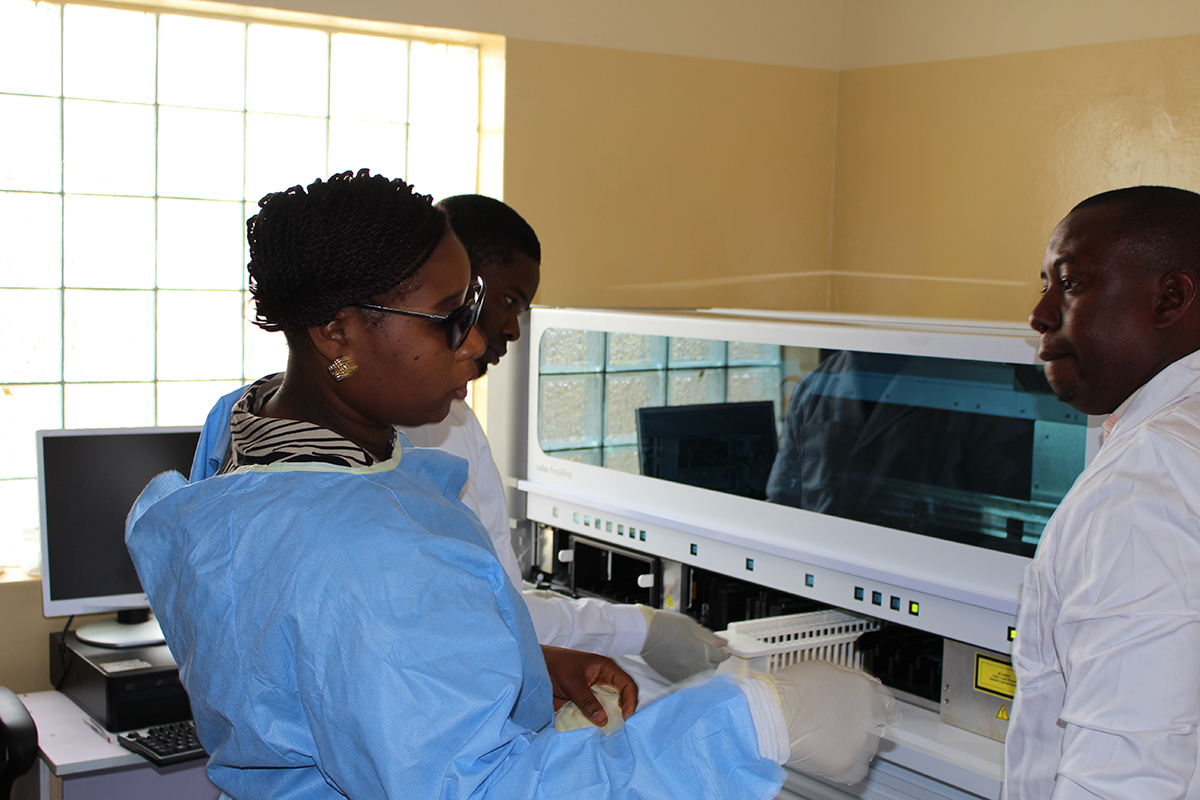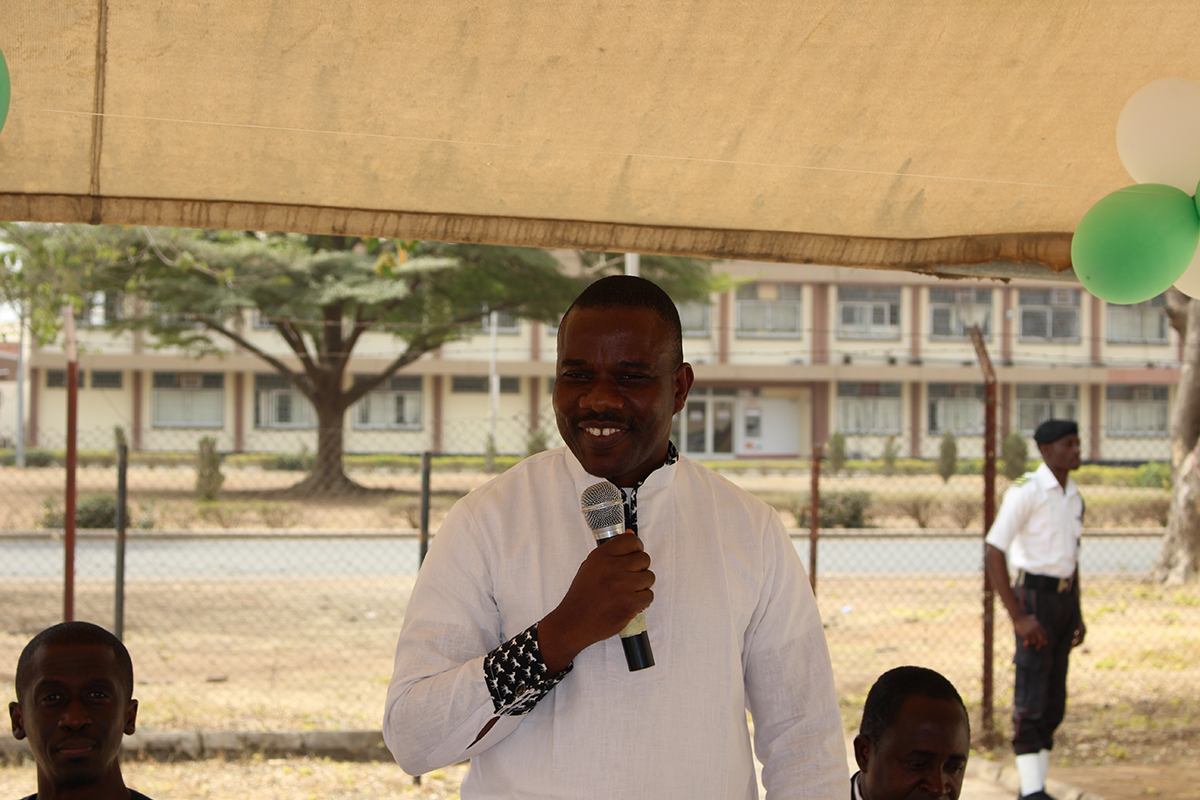Government Agencies Collaborate to Boost Viral Load Testing in Nigeria

Healthcare services are often more accessible when government agencies and other stakeholders collaborate for the smooth running of healthcare facilities, instead of working independently as different entities. Such was the case of collaboration in Nigeria, between the Nigerian Centers for Disease Control (NCDC) and the University of Abuja Teaching Hospital (AUTH), both agencies under the Federal Ministry of Health (FMoH). These organizations collaborated to upgrade the AUTH’s PCR Lab, using a U.S. CDC-supported Polymerase Chain Reaction (PCR) machine, initially meant for the NCDC’s central laboratory, which is still under reconstruction.

The two agencies NCDC and UATH worked with Institute of Human Virology Nigeria (IHVN), a U.S. CDC PEPFAR Implementing Partner, to use the high-throughput equipment to upgrade the current PCR Laboratory in AUTH. AUTH, located in Gwagwalada, is one of the biggest facilities offering comprehensive HIV/AIDS lifesaving services in the Federal Capital Territory with proximity to Kogi, Niger and Benue States of Nigeria.
Donation of the state-of-the-art ROCHE full automated Cobass Ampliprep CAP and Cobass Taqman CTM 96 PCR equipment is timely for the standard of quality healthcare of HIV/AIDS patients. The equipment can do HIV viral load assay and early infant diagnosis among other virological PCR-based diagnosis and monitoring. The ROCHE CAP/CTM can serve more than 9,000 patients receiving treatment in UATH. To optimize the use of the equipment, UATH will serve as PCR laboratory reference center for other HIV Treatment centers in Niger, Kogi, Kwara, Benue, and FCT states in the National Sample Referral Network. The new machines and the creation of the network will enhance meeting the Joint UNAIDS 2020 strategy of “90-90-90.”

In a goodwill message at the commissioning ceremony, the CDC-Nigeria Laboratory Branch Chief, Mr. McPaul Okoye, stated that the AUTH is enjoying this PCR laboratory expansion and upgrade primarily because of its identification as a committed partner in the provision of care and treatment for people living with HIV/AIDS in Nigeria. Most importantly, the collaboration between the two government agencies served as a demonstration of commitment to offer services from both sides and testimony to the fact that Nigeria is committed to fighting HIV/AIDS.
Mr. Okoye emphasized the importance of treatment monitoring using viral load machines in comparison with CD4 count machines, which no longer provide adequate information on the treatment of patients. He said the upgraded laboratory at UATH would form part of the Integrated Sample Transfer Mechanism, which is a network of laboratories linked together via a network of over 500 facilities for collection and processing of samples, thereby reducing turnaround time for provision of test results.

CDC-Nigeria congratulated the Government of Nigeria and its two agencies for working collaboratively to ensure the project was a success. It identified that for Nigeria to defeat the AIDS epidemic, such collaboration must be encouraged because it leads to better and efficient use of resources. CDC-Nigeria also appreciates the support of its implementing partner IHVN in making sure the machine was installed and ready for service provision.
Through the PEPFAR program, CDC-Nigeria is working with other U.S. government agencies—USAID and DoD—in the provision of care and treatment to more than 700,000 people living with HIV, currently receiving highly active antiretroviral therapy (HAART) in Nigeria. Since 2005, PEPFAR has established 27 PCR laboratories with automated systems across Nigeria.